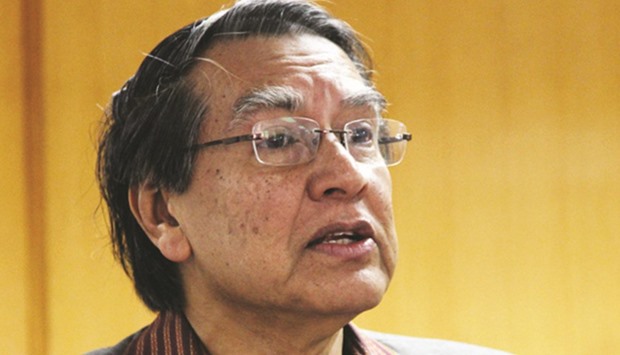A court granted one of Bangladesh’s top newspaper editors bail yesterday following a spate of defamation suits from government supporters over reports alleging corruption against the now prime minister.
Daily Star editor Mahfuz Anam was summoned to appear in court in the northern city of Rangpur over one of the 62 suits filed against him for stories published in 2007.
“Anam surrendered to the court this morning and he was granted bail,” his lawyer, Munir Chowdhury, said.
Anam said last month the stories had been based on uncorroborated leaks from the military-backed caretaker government that ruled Bangladesh until Sheikh Hasina become prime minister in 2009.
Anam said he had been wrong to publish them, sparking an outcry from government supporters and calls from Hasina’s son for the editor to be tried for treason.
Pro-government groups have since filed 62 suits, seeking a total of 1.33trn taka ($16.6bn) in damages for defamation, a criminal offence that in Bangladesh also carries a penalty of up to two years in jail.
The reports, based on information supplied by a military cell, were also carried by most other Bangladesh newspapers.
The cell was set up by the-then caretaker government that ruled Bangladesh for two years after a military takeover in 2007, which led to the arrest of Hasina and her main political rival Khaleda Zia, now leader of the opposition, on corruption charges.
Neither was convicted of any crime and both denied
corruption.
Human Rights Watch and other groups have slammed the suits, saying they “are part of a larger, organised assault on independent media”. Criminal defamation cases are rarely brought before the courts in Bangladesh.
But Hasina on Monday night accused Anam and the editor of Prothom Alo, Bangladesh’s largest circulated daily and a sister company of the Star, of conspiring against her.
“They ran the reports either as paid DGFI (the military intelligence agency) agents or because they were involved in a conspiracy,” she told parliament, according to online news portal bdnews24.com
“What kind of ties could one have with those who tortured teachers, students, and
politicians?” she said.
Fears over freedom of speech have been mounting in Bangladesh, which has seen a spate of killings of secular bloggers and publishers.

Mahfuz Anam ... facing 62 suits
